“Codependency is about normal behaviors taken too far. It’s about crossing lines.“
We all started life by depending on our parents, caregivers, society, and peers. Codependency is not necessarily bad, there is a place and time for it. We started out life helpless, unable to walk, speak, feed, and do the basic things without the help of our caregivers but with time, we are supposed to figure out a lot of these life skills. For most of us, we still remain dependent on our parents, society, spouse, and peers for things; we ought to have figured out. Our family and friends, knowingly or unknowingly enable some of these behaviors such as chemical dependence, drug and alcohol addiction, financial irresponsibility, among other things.
As the author of Codependent No More, Melody Beattie put it : “Codependency is about normal behaviors taken too far. It’s about crossing lines.” The danger is becoming codependent beyond the normal point of dependence. Codependency shows up in our relationships through enabling people or substance abuse and other self-desctructive behaviours such as alcoholic parents, chemically dependent siblings, enmeshed and dysfunctional family units and toxic entanglement with our friends and peers.
What is Codependency?
A codependent person is someone who has let another person’s behaviour affect him or her, and who is obsessed with controlling that person’s behaviour. Codependency is about normal behaviors taken too far. It’s about crossing lines. (Melody Beattie, Codependent No More, 1986)
In sociology, codependency is a concept that attempts to characterize imbalanced relationships where one person enables another person’s self-destructive tendencies (such as addiction, poor mental health, immaturity, irresponsibility, or under-achievement) and/or undermines the other person’s relationship. 1
The surest way to make ourselves crazy is to get involved in other people’s business, and the quickest way to become sane and happy is to tend to our own affairs.
Codependence is a disease that deteriorates the souls. It affects our personal lives; our families, children, friends, and relatives; our businesses and careers; our health; and our spiritual growth. It is debilitating and, if left untreated, causes us to become more destructive to ourselves and others. (Codependent Anonymous)
Who is a codependent?
According to the CoDependent Anonymous (CoDA) pamphlet: “Am I Co-Dependent?”, the following outlines the characteristics of codependence:
Denial Patterns
Codependents often…
- have difficulty identifying what they are feeling.
- minimize, alter, or deny how they truly feel.
- perceive themselves as completely unselfish and dedicated to the well-being of others.
Low Self-esteem Patterns
Codependents often…. - have difficulty making decisions.
- judge what they think, say, or do harshly, as never good enough.
- are embarrassed to receive recognition, praise, or gifts.
- are unable to identify or ask for what they need and want.
- value others’ approval of their thinking, feelings, and behavior over their own.
- do not perceive themselves as lovable or worthwhile persons.
Compliance Patterns
Codependents often…. - compromise their values and integrity to avoid rejection and other people’s anger.
- are very sensitive to other’s feelings and assume the same feelings.
- are extremely loyal, remaining in harmful situations too long.
- place a higher value on other’s opinions and feelings and are afraid to express differing viewpoints or feelings.
- put aside their own interests in order to do what others want.
- accept sex as a substitute for love.
Control Patterns
Codependents often… - believe people are incapable of taking care of themselves.
- attempt to convince others what to think, do, or feel.
- become resentful when others decline their help or reject their advice.
- freely offer advice and direction without being asked.
- lavish gifts and favors on those they want to influence.
- use sex to gain approval and acceptance.
- have to feel needed in order to have a relationship with others.
Avoidance Patterns
Codependents often… - act in ways that invite others to reject, shame, or express anger toward them.
- judge harshly what others think, say, or do.
- avoid emotional, physical, or sexual intimacy to avoid feeling vulnerable.
- allow addictions to people, places, and things to distract them from achieving intimacy in relationships.
- use indirect or evasive communication to avoid conflict or confrontation.
- believe displays of emotion are a sign of weakness.
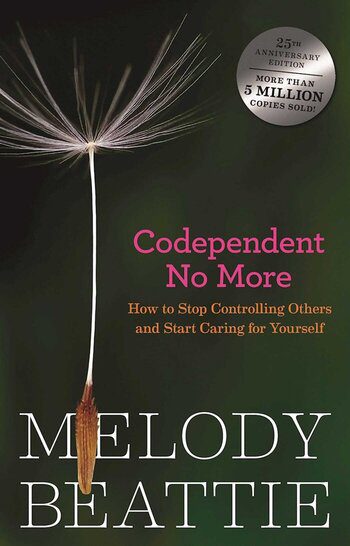
In Codependent No More: How to Stop Controlling Others and Start Caring for Yourself, author and survivor Melody Beattie writes extensively on codependency, its root, characteristics of codependency, strategies, and tools for dealing with a codependent relationship.
“A codependent person is one who has let another person’s behavior affect him or her, and who is obsessed with controlling that person’s behavior.
Codependency is about crossing lines. How can we tell if what we’re doing is codependent? When we cross the line into the Codependent Zone, we’ve usually got an ulterior motive for what we do, and what we’re doing hurts. It doesn’t work.
Codependency isn’t a romantic problem. But the denial, obsession with what we lost, guilt, bargaining, controlling, anger, and sadness—if we look closely enough we’ll see how similar codependency is to grief. Most people with codependency issues have lost a lot. We may not be aware of how much we have lost if we lost something we never had—like feeling safe, protected, and loved. All we know is that we feel incomplete. We cling to anyone we can, hoping we’ll find our missing pieces in them. (The New Codependency, Melody Beattie 2009).
Codependency is about crossing lines.
She described the following characteristics exhibited in co-dependent relationships:
Codependents are Reactionaries.
They overreact. They under-react. But rarely do they act. They react to the problems, pains, lives, and behaviors of others. They react to their own problems, pains, and behaviors. Many codependent reactions are reactions to stress and uncertainty of living or growing up with alcoholism and other problems. It is normal to react to stress. It is not necessarily abnormal, but it is heroic and life-saving to learn how to not react and to act in more healthy ways. Most of us, however, need help to learn to do that.
CARETAKING
Codependents may: think and feel responsible for other people—for other people’s feelings, thoughts, actions, choices, wants, needs, well-being, lack of well-being, and ultimate destiny.
LOW SELF-WORTH
Codependents tend to: get angry, defensive, self-righteous, and indignant when others blame and criticize the codependents—something codependents regularly do to themselves.
REPRESSION
Many codependents: push their thoughts and feelings out of their awareness because of fear and guilt.
OBSESSION
Codependents tend to: feel terribly anxious about problems and people.
CONTROLLING
Many codependents become afraid to let other people be who they are and allow events to happen naturally.
DENIAL
Codependents tend to: ignore problems or pretend they aren’t happening.
Detachment
Most codependents are attached to the people and problems in their environments. Attachment is becoming overly involved, sometimes hopelessly entangled.
An estimated 80 million people are chemically dependent or in a relationship with someone who is.
What Co-Dependency is not
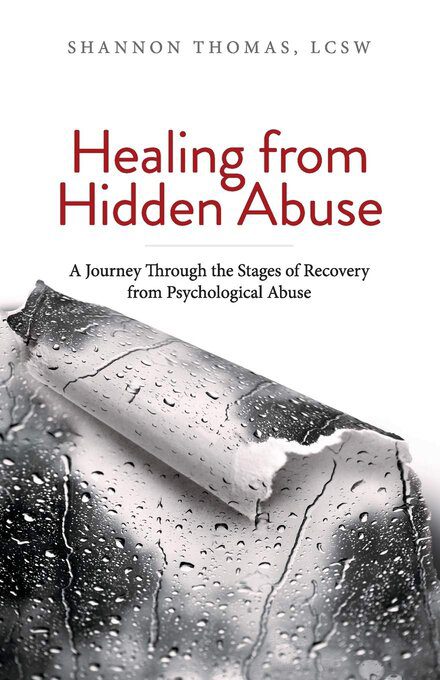
In Healing from Hidden Abuse: A Journey Through the Stages of Recovery from Psychological Abuse, author and certified trauma therapist Shannon Thomas distinguishes between being an empath and co-dependency. He writes:
- Codependency involves an unhealthy enmeshment that occurs between two people. It usually happens in relationships where one person enables the other individual to make poor choices. People who struggle with codependency can learn new ways of thinking and behaving.
- Being an Empath is a personality type, and it has many beautiful qualities. Like any set of character traits, there will be pros and cons. People who identify as being highly empathetic will benefit from learning how to keep their levels of empathy from becoming harmful to their well-being.
Psychological abusers exploit the exact traits that most empaths find beautiful in themselves. In recovery, many survivors begin to self-identify as being highly empathetic. They see that their relationship strengths were used against them by the abuser.
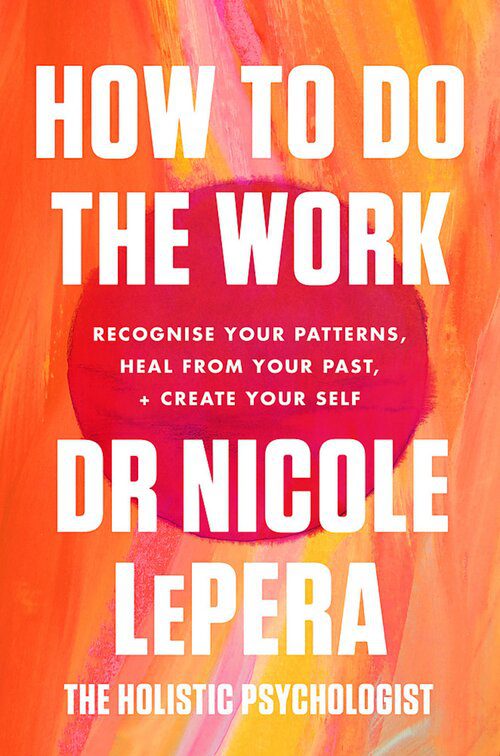
In How to Do the Work: Recognize Your Patterns, Heal from Your Past, and Create Your Self, clinical psychologist, Dr. Nicole LePer advocates reparenting as a means to healing from codependency. She writes:
When we experience our parent-figures engage in supportive behaviors, we learn that it’s safe to express our needs and reach out to other people for help. Most parent-figures never learned how to meet their own needs, let alone another person’s, passing on their own unresolved traumas and conditioned coping strategies. Even well-intentioned parent figures don’t always give us what serves us. Meeting all of someone’s varied and unique needs all the time is almost impossible.
The reparenting process looks different for everyone. Generally, we want to quiet our inner critic and embrace self-respect and compassion. With the help of the wise inner parent, you can learn how to validate your reality and feelings by witnessing them, rather than instinctually judging or ignoring them. Your wise inner parent cultivates acceptance while honoring the needs of your inner child—to be seen, heard, and valued for the authentic parts of yourself. You become the priority.
Every moment, we make a choice: we can live in the past, or we can look forward and envision a future that is different. Our tendency when we return to a system, regardless of how much work we do on our own, is to revert to old patterns. The temptation is to embrace the familiar subconscious conditioning. We can also decide to participate in the opening of an unfamiliar, uncertain door.
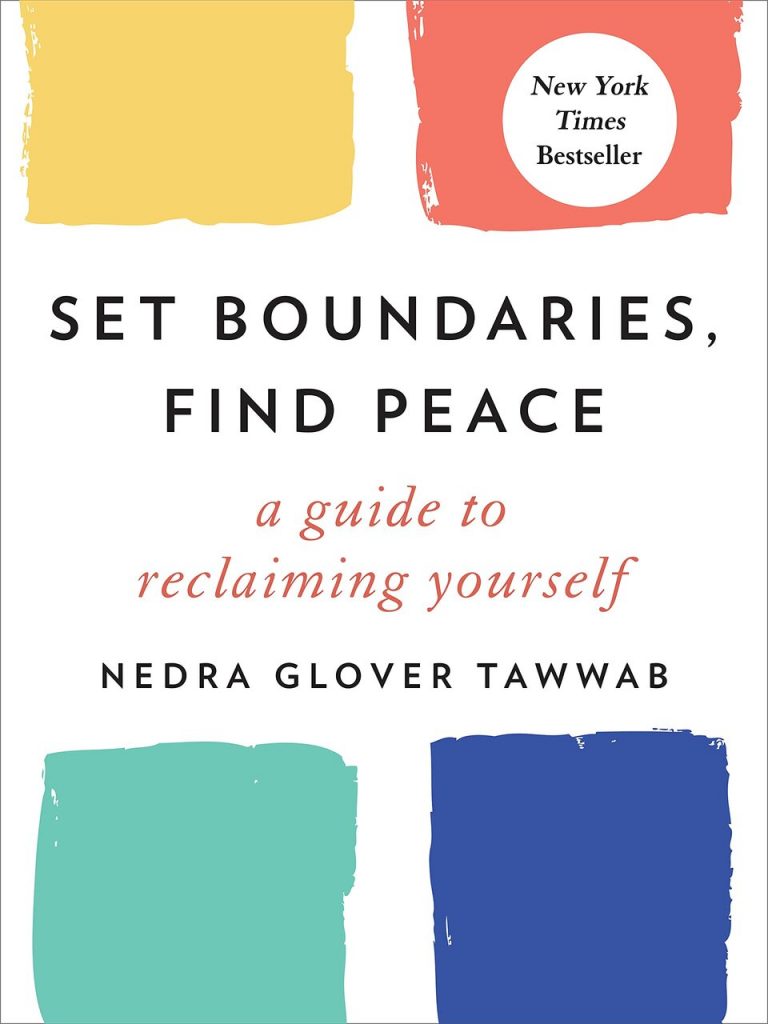
Licensed counselor Therapist and New York Times Bestselling Author Nedra Tawwab shares strategies for setting limits and boundaries in codependent relationships. In her book, Set Boundaries, Find Peace: A guide to reclaiming yourself, She wrote:
In codependent relationships, we believe we must help people avoid consequences, saving them from unpleasant experiences. We think it’s our role to protect them. But rather than protect, we enable the other person to continue their unhealthy behavior.
The term “codependent” has been around for decades and is often used when describing dysfunctional family dynamics, especially when addiction is involved. But codependency pertains to any relationship where people become emotionally entangled with the feelings and outcomes of others. In codependent relationships, it’s challenging to separate what we feel from what others think and feel.
Boundaries for Codependency
- Set clear expectations with regard to how you can help.
- Provide feedback about how the other person’s behaviors are affecting you.
- Support people without doing things for them.
- Wait for people to ask for help instead of offering before they ask.
- Honor your commitment to yourself about what you will and will not tolerate in relationships.
- Be vocal about toxic behaviors you observe.
- Take care of yourself.
- Hold people accountable for caring for themselves.
- Help while teaching people how to help themselves.
In codependent relationships, we believe we must help people avoid consequences, saving them from unpleasant experiences. We think it’s our role to protect them. But rather than protect, we enable the other person to continue their unhealthy behavior.
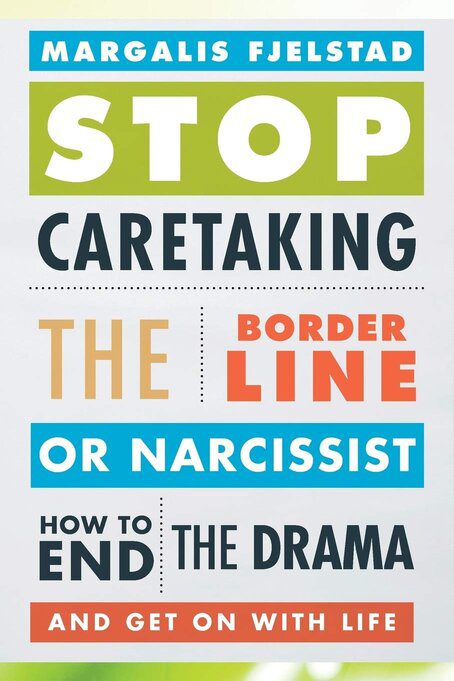
Marriage and Family Therapist Margalis Fjelstad and author of Stop Caretaking the Borderline or Narcissist highlighted the difference between caretaking and codependency. She noted:
In order to move through the stages from Caretaker to self-care, you need to know what you think, how you feel, what you want, and how you want to live your life.
Codependency seems to be a more pervasive set of personality traits that are applied in every aspect of a person’s life, including at work, in friendships, at school, in parenting, and in intimate relationships. Codependent behaviors could be described quite similarly to those that Caretakers use. However, most Caretakers take on this role almost exclusively inside the family and primarily only with the borderline or narcissist.
Often Caretakers are very independent, good decision-makers, competent, and capable on their own when not in a relationship with a borderline or narcissist. It is almost as if the Caretaker lives in two different worlds with two different sets of behaviors, rules, and expectations, one set with the BP/NP and another with everyone else. You may even hide your caretaking behaviors from others and try to protect other family members from taking on caretaking behavior, much like child abuse victims try to protect siblings from being abused.
What is common to all Caretakers, however, is a high level of needing to care for others, a willingness to let go of any and all of your own needs, an amazing adaptability, great skill in soothing and calming other people, a lot of internal guilt, high levels of responsibility, and a great dislike of conflict.
The Twelve Steps of Co-Dependents Anonymous
- We admitted we were powerless over others – that our lives had become unmanageable.
- Came to believe that a power greater than ourselves could restore us to sanity.
- Made a decision to turn our will and our lives over to the care of God as we understood God.
- Made a searching and fearless moral inventory of ourselves.
- Admitted to God, to ourselves, and to another human being the exact nature of our wrongs.
- Were entirely ready to have God remove all these defects of character.
- Humbly asked God to remove our shortcomings.
- Made a list of all persons we had harmed, and became willing to make amends to them all.
- Made direct amends to such people wherever possible, except when to do so would injure them or
others. - Continued to take personal inventory and when we were wrong promptly admitted it.
- Sought through prayer and meditation to improve our conscious contact with God as we understood
God, praying only for knowledge of God’s will for us and the power to carry that out. - Having had a spiritual awakening as the result of these steps, we tried to carry this message to other
codependents, and to practice these principles in all our affairs.
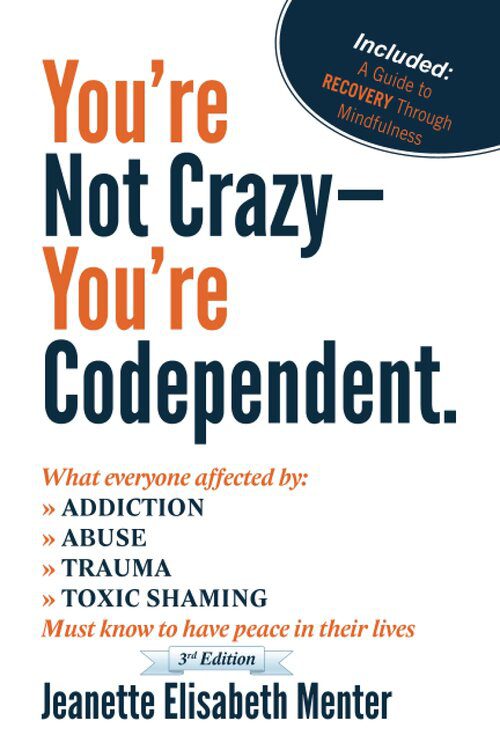
In You’re Not Crazy – You’re Codependent.: What Everyone Affected by Addiction, Abuse, Trauma or Toxic Shaming Must know to have peace in their lives, writer and survivor Jeanette Elisabeth Menter shares some strategies on dealing with codependency in our relationships. She advised readers to commit to doing the following:
- Setting aside time to concentrate on your own well being. Codependents are historically not very good at doing this. You will be fighting your own, non-stop, reasoning mind which will tell you there isn’t time, you don’t have the energy and you already know what to do.
- Being willing to see yourself from a new perspective. This will also be hard because you’ve spent your entire life with a distorted concept of who you are.
- You have got to be ready to go from knowing in your head to actually doing. This may be the hardest of all because all those automatic behaviors – while not leading to the positive outcomes you hoped for – are natural to you. Nevertheless, you are going to have to do things that go completely against your nature such as not striving for perfection. There is no one right way or answer. It’s all unique to you. You can’t let your feelings of guilt run your actions because you think you’re not doing it perfectly enough. Everything that is codependency is going to be working against you here.
- Most important of all, you have to believe you can be transformed into the healthy being you want to become. You must be able to see yourself with a fresh and balanced mind, a vibrant body and lifestyle.
Once you understand you are not crazy, just coping with the deep-seated effects of codependency, you will be free to create the life you were always meant to have.
As Swiss Psychoanalyst, Carl Jung once quipped: “Until you make the unconscious conscious, it would direct your life and you would call it fate.” Most of us are operating below the veil of awareness and consciousness as we are mostly unaware of the reason we act the way we do, we are in constant autopilot, tiptoeing towards our grave, always in busy mode doing things that do not really matter. As American essayist and poet, Henry David Thoreau once commented: “It is not enough to be busy, so are the ants. The question is: What are we busy about?
“Besides the noble art of getting things done, there is the noble art of leaving things undone. The wisdom of life consists in the elimination of non-essentials.”― Lin Yutang, The Importance of Living
Most of us numb our emptiness by masking our insecurities, we become helpless, enable destructive behaviors with our family, friends, siblings, and the world at large because of our fear of being alone. At the root of most of our issues in life is a fear of something. We make most of our decisions based on the fear of something: We need to be busy doing the necessary work need to become more self-aware and self-reliant and find our purpose here on earth.
Most humans would never get to that level of consciousness and awareness because we are easily distracted and sulked in with the vicissitudes of life such as our toxic and draining job, our narcissistic work colleagues, our manipulationships disguised as friendships, our gossip partners disguised as childhood friends, we are drawn to the never-ending family drams in our enmeshed and dysfunctional family units, distracted by our technology devices that take a large chunk of our time on a daily basis.
The key to becoming less codependent is to become more self-reliant, self-aware, communicate your needs assertively, set healthy boundaries, enforce the consequence of violating your boundaries, focus on yourself through self-care activities, detach from destructive relationships that are not adding value to your life. The work of lifting the veil from the trauma called our childhood is a lifelong journey and it requires dedication and commitment to make the unconscious conscious as noted by Carl Jung.
All the Best in your quest to get Better. Don’t Settle: Live with Passion.
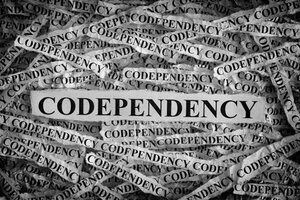

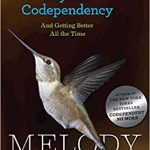
Comments are closed.